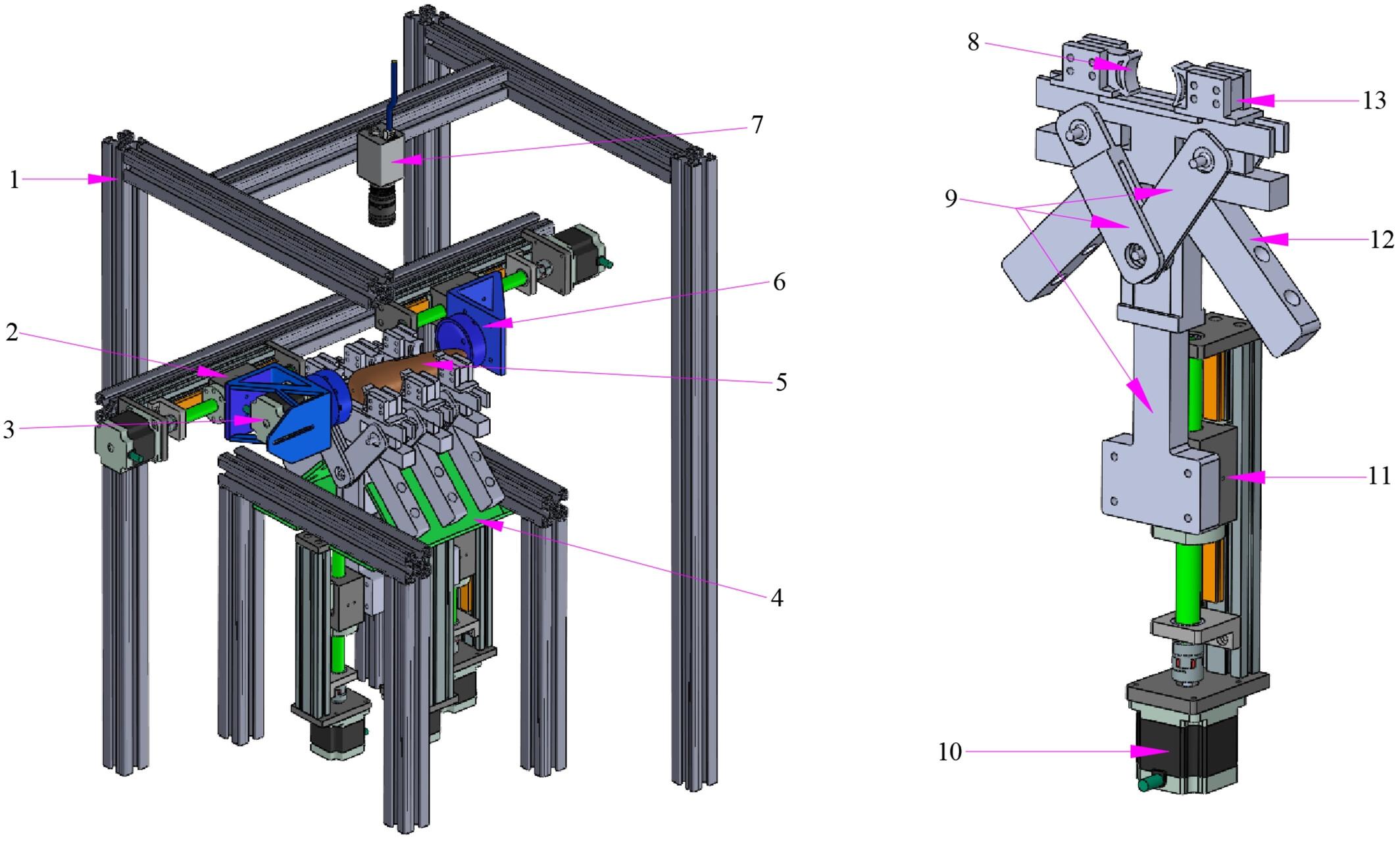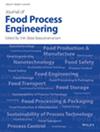Cracked carrots account for a large proportion of defective carrots, which are usually discarded or used as feed, resulting in resource waste and economic benefit loss. Cracked carrots can be used as raw materials for further processed carrot products after being trimmed. So, an auxiliary device was developed combining PLC (Programmable Logic Controller) and machine vision to achieve clamping and crack defect localization for intelligent trimming of crack defect. The carrot was orientated based on the area method, rotated by flexible jaws and a rotating cylinder to make the carrot head and tail aligned. The clamping device could non-destructively clamp carrot in axial and radial direction with a force threshold of 10 and 22 N respectively, and rotate carrot to make the crack defect upwards. The results showed that the recognition accuracy of carrot head and tail orientation was 98%, the average deviation of carrot centroid clamping position was less than 9 mm at a speed of 300 mm/s, the rotational positioning time was less than 3 s and the number of adjustments were no more than 2 at a motor speed of 180 rpm, which could meet the subsequent trimming requirements.
Trimming the cracked area of carrots can reduce bacterial growth and decay, which is beneficial for subsequent processing and reduces resource waste. This article designs a carrot auxiliary trimming device, which uses image processing technology to recognize the orientation of the head and tail of carrots and the cracked area, and uses automated equipment to achieve stable clamping of carrots and make the cracked area face the trimming tool. This study is beneficial for the refined management of agricultural products.



